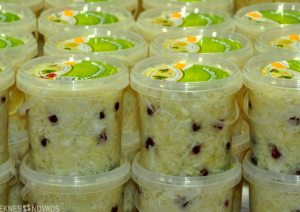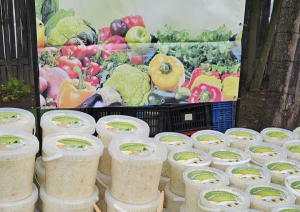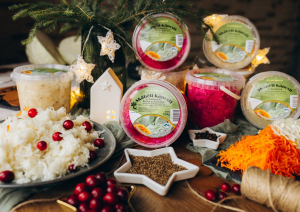The Lukstiņmājas farm was founded in 1993, when it began farming family land in the village of Mazie Garanči, in the Rēzekne district. Initially, only family members were involved in the work, cultivating a few hectares of land. Their greatest resources were their love for work, their experience in the countryside, and their belief that perseverance leads to success. The farm grows and offers local residents fresh and pickled vegetables, such as cabbage, carrots, beets, etc. Each year, the range of products has been expanded and cultivation techniques improved, using both traditional methods and modern agricultural techniques. In 2016, the farm was recognized as complying with the criteria of the Integrated Vegetable Growing and National Food Quality Scheme.
Lukstiņmājas farm uses various sources of financing, including state support and funding from the European Agricultural Fund for Rural Development, to modernize and expand its agricultural machinery fleet.
One positive example of the successful use of European Union funding is a project implemented to purchase the necessary equipment to farm more efficiently. In cooperation with the Rural Support Service and by submitting a project application to the EAFRD co-financed project under the measure "Investments in physical assets", new equipment was purchased that can be used for soil crumbling and harrowing. The new soil cultivation equipment significantly improves the efficiency of the farm's work and the quality of vegetable production. The modernized equipment allows the farm to carry out more precise and environmentally friendly soil cultivation, reducing resource consumption and at the same time ensuring better growing conditions. This investment is an important step in the development of sustainable and competitive vegetable growing in the local market.
Such support, received since 2008, has enabled the farm to gradually renew and improve its machinery, introducing modern technologies and increasing production efficiency. This long-term investment strategy is a key factor in the farm's sustainable development and competitiveness in the local market.







